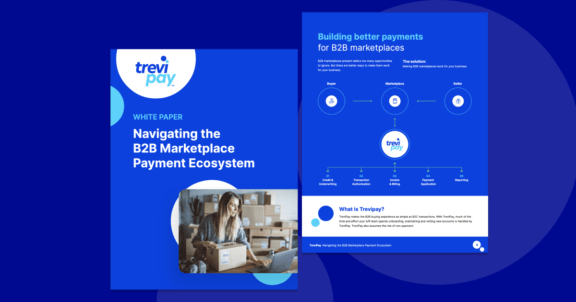News & Insights · Approx. 2 minute read
A Lack of Electronic Invoicing Disrupts Payments

Nearly all B2B financial department professionals manually input at least some invoice or billing information, contributing to billing errors, disputes and late payments.
More than half of B2B financial departments say managing billing disputes is one of their most challenging tasks—a problem exacerbated by the use of manual methods to manage invoices, according to a new study of 300 U.S. B2B financial department professionals.
The study, conducted in April 2020 by financial technology and services firm TreviPay, found that 94% of respondents said they input “at least some” invoice or billing information into their accounts/receivable (A/R) systems. The study notes that “billing errors are key contributors to decreased profitability, disputes and late payments,” adding: “Over half (55%) of respondents say managing disputes is one of the most challenging tasks for their A/R team and 99% of teams say disputes contribute to late payments.”
The study from TreviPay also found:
- 25% of respondents say that manual payment methods like paper checks are the primary invoice-payment method their customers use;
- 27% use an in-house credit-assessment system to screen new customers;
- 48% send invoices through email, 18% through traditional mail;
- 27% say they manage unique invoicing and billing requirements for more than half of their customers; and
- 33% say they have average daily sales outstanding—or the average number of days it takes to receive payment from customers after a sale—of 45 to 60 days, a delay often resulting from errors in invoicing and billing statements.
Relying on manual processes to manage billing and invoicing is even more challenging during the pandemic when many businesses work outside of their usual office space, says Brandon Spear, president of TreviPay. “If the main way they get paid is by paper check, how are they processing them; and if invoices are mailed, how are they capturing them? They need staff at the office to do that.”
Spear says TreviPay has noticed more B2B companies pivot during the pandemic from in-person sales to relying more on eCommerce, which has created more interest in deploying online applications for managing customer credit as well as invoicing, billing and payments.
Article written by Paul Demery was originally posted on Digital Commerce 360.
Stay up-to-date with the latest from TreviPay
Thank you for subscribing! You will now receive email updates from TreviPay.



